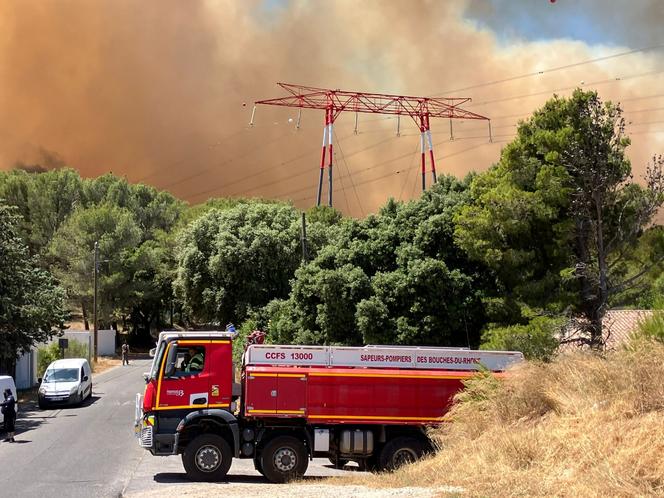


A wildfire that disrupted planes and trains in Marseille, France's second-largest city, decreased in intensity on Wednesday, July 9, officials said. Several fires have raged in recent days in the southern region, fanned by winds and kindled by parched vegetation, including Tuesday's just north of the port city of Marseille.
"The fire is clearly receding, it is no longer advancing," Marseille firefighting chief Lionel Mathieu said. The flames swept through 750 hectares of land, affecting at least 70 homes, of which 10 were destroyed, but there were no human casualties, Mathieu added.
Some 700 firefighters were on duty on Wednesday morning, with helicopters dumping water from the air to help their colleagues on the ground. Local authorities said some 15,000 residents of Marseille's 16th district in the north of the city, hit by flames on Tuesday afternoon, were now allowed out of their homes. But it was still too early for some 400 of them who were evacuated to return home.
The blaze had started in an area north of Marseille late Tuesday morning after a vehicle caught fire. "There's every reason to believe that we're heading for a high-risk summer," warned Interior Minister Bruno Retailleau on Tuesday evening at a press briefing with firefighters in Marseille.
In just a few hours, the fire had spread over 700 hectares, leading to the closure by midday of Marseille Provence airport, France's fourth-largest in terms of passenger numbers, located to the north of the city.
Traffic partly resumed around 19:30 GMT on Tuesday, but local authorities warned the airport could be closed again on Wednesday to allow for more airborne firefighting. According to satellite images, the smoke plume stretched out to sea for around a hundred kilometers.
High-speed train traffic in Marseille resumed on Wednesday morning after a fire-related interruption, while local train traffic remains severely disrupted, railway operator SNCF announced.
The first major fires of the season broke out in France this weekend in several southern departments, causing heavy traffic jams in the middle of the start of summer holidays. Scientists say human-induced climate change is increasing the intensity, length and frequency of extreme heat that fuels forest fires.
